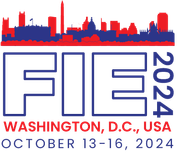A Vision for the Next 15 Years of Computing Education
Goals of the Special Session The goals of this session are to continue the presentation of a final report from an NSF sponsored workshop to envision the future direction of computer science education at the undergraduate level in the next 15 years. In presenting the ideas of the report, the workshop leaders and principal final report authors hope to create a dialog within the community about how to embrace the goals and ideals put forward in the report of rethinking the computing curriculum and working to infuse equity, social justice, and humanities as part and parcel of the discipline for all students. Anticipated Audience The anticipated audience are those interested in thinking about the future direction of computer science curricula, whether it be as decision makers in a department or simply faculty thinking about issues within their computing courses.

